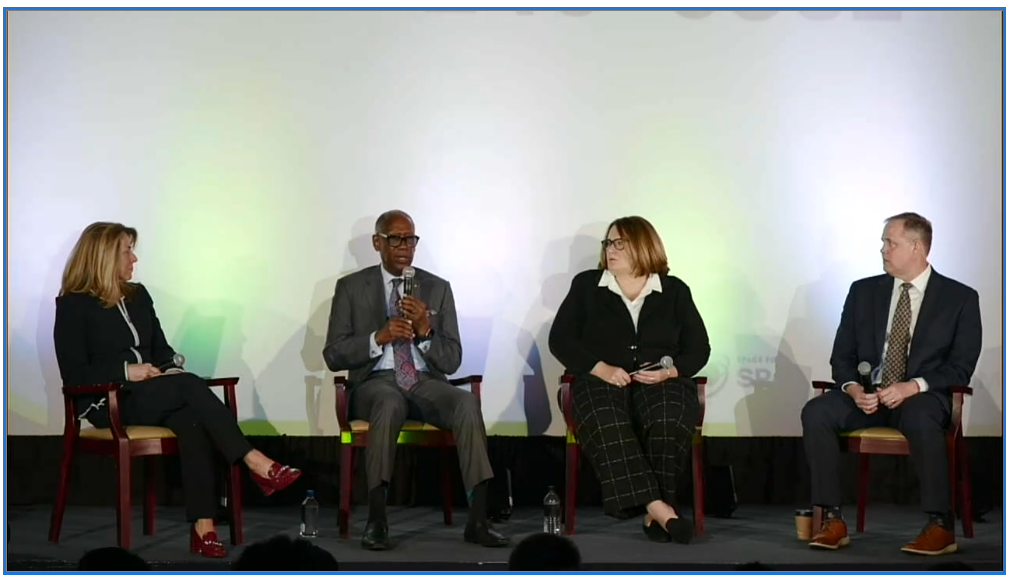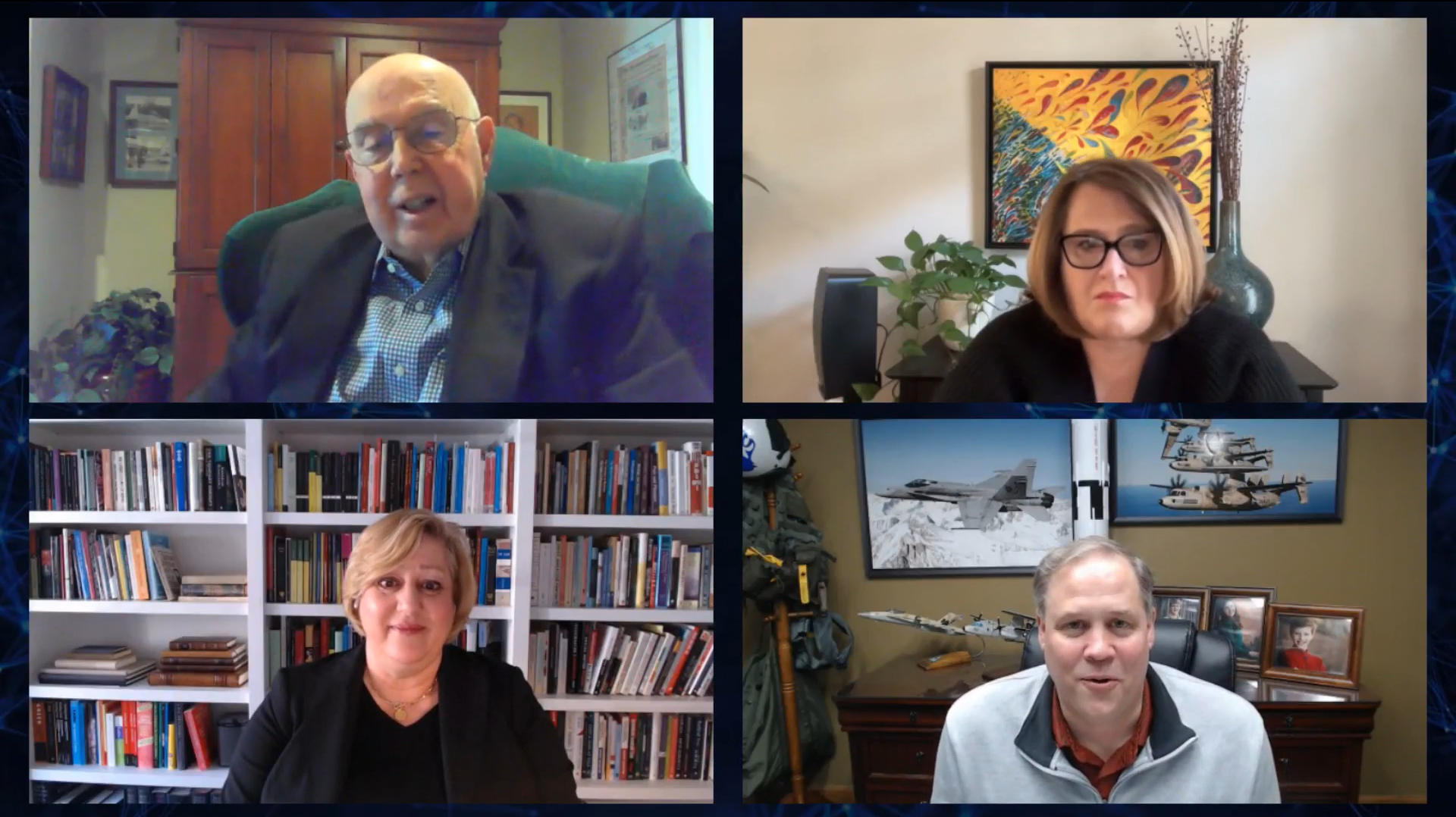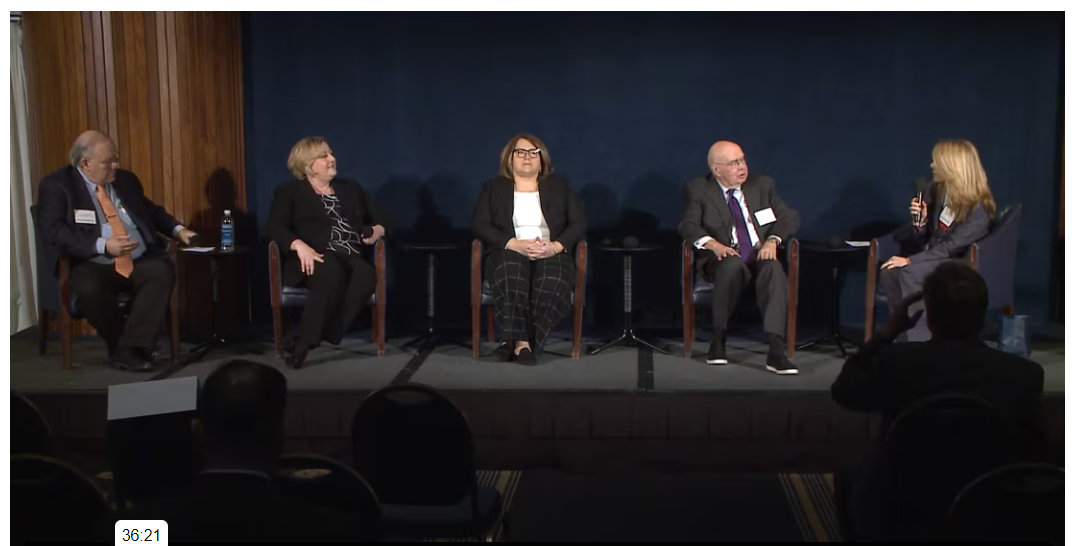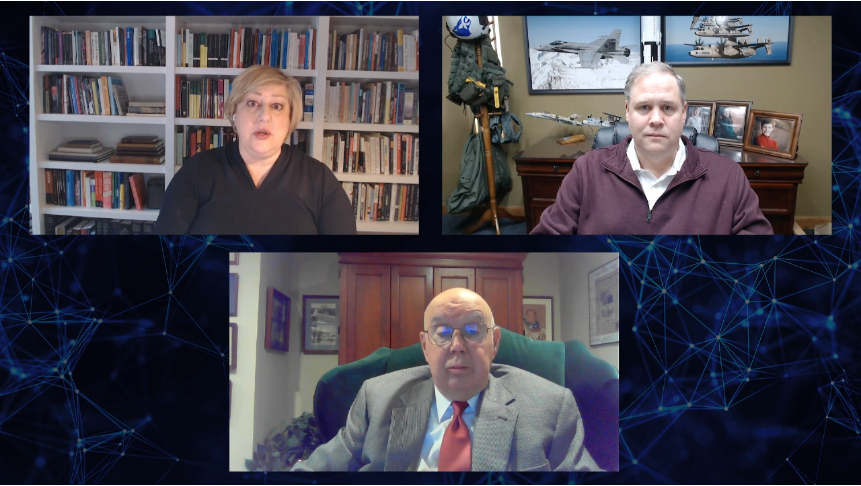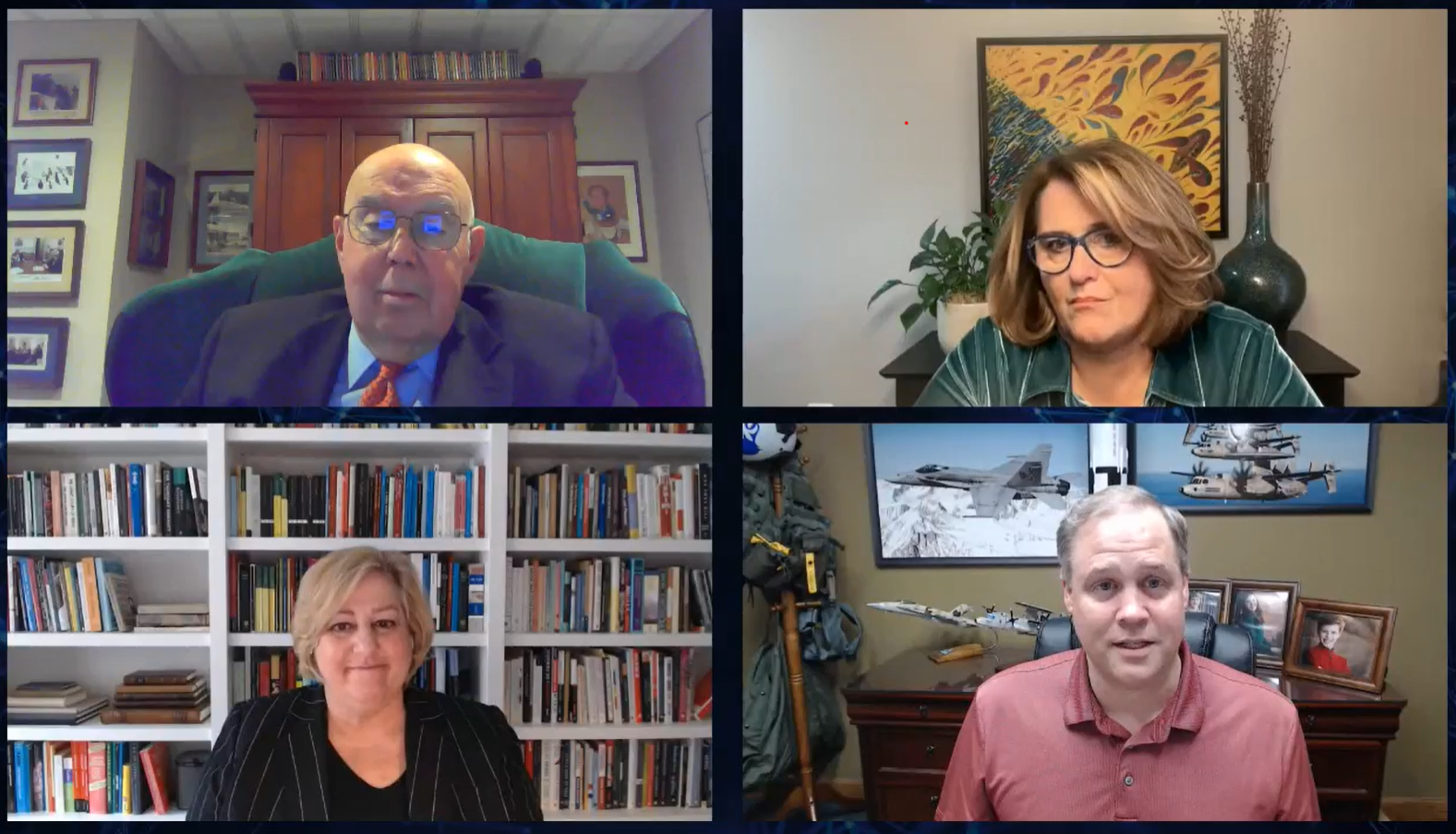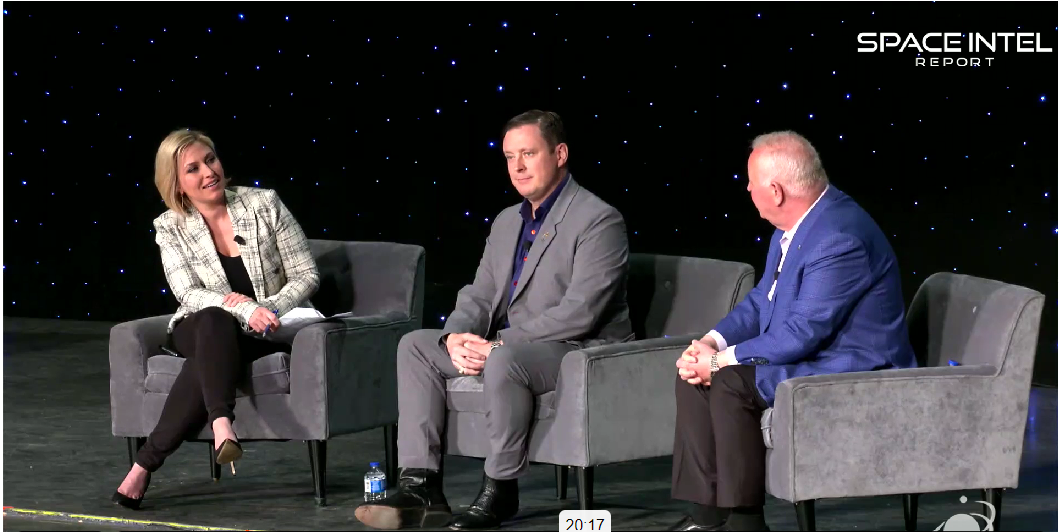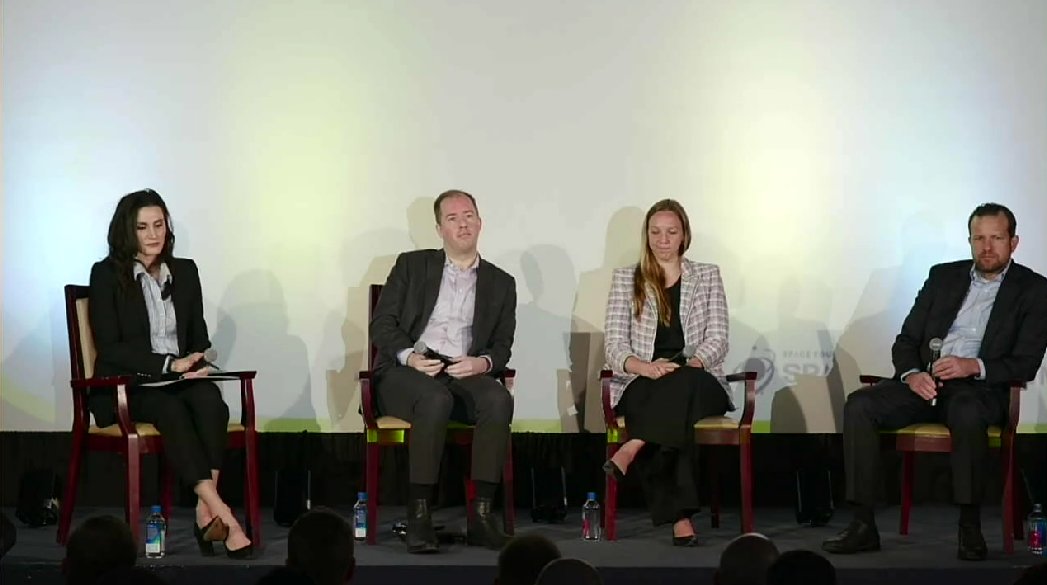Space Matters: The Future of LEO: Satellite Expansion and Ongoing Government Support, Experts Say
Originally aired on: February 7, 2024
As diverse as the opportunities in low Earth orbit are becoming — with development of private space stations, space tourism and in-space manufacturing — the majority of operations and revenue, at least in the near term, will continue to grow from satellite communications and Earth observation.
That assessment comes in the latest episode of Space Foundation’s Space Matters, a gathering of government and policy experts that includes former U.S. Rep. Bob Walker, BryceTech CEO Carissa Christensen and Constellation Advisory CEO Patricia Cooper.
“As we think about what the mix at LEO will bring and what will be profitable and what will build that economic driver, it’s useful to remind ourselves there are still several companies and systems operating in low Earth orbit now that are profitable, ranging from Iridium, and GlobalStar and ORBCOMM,” Cooper said.
The good news, she added, is that there are more tools available, such as big data analysis, and new propellants helping make satellites more navigable in a crowded orbit. The challenge is to scale these new tools to a busier environment, she said.
“That’s I think what we really are at the cusp of,” Cooper said. “We’ve been waiting for that Jetsons space era to emerge, and I feel like we’re right on the verge of it, but we aren’t prepared with the right tools and the right safeguards and maybe policy frameworks to ensure that that can happen.”
Market Disruptions Emerge
The LEO economy is in a multi-decade arc that only recently is seeing disruption from mega constellations, Christensen said. While that has helped drive down launch costs, that reduction has not been enough to offset expenses in non-satellite enterprises such as in-space research or manufacturing
“Non-satellite activities still largely funded by government,” she said. “But it tends to be more R&D and experimentation as opposed to full-on manufacturing or mature business activities. So what’s interesting now is where do we see that arc go with the emergence of more commercial space.”
Encouraged by Innovation
Walker eagerly anticipates the speed of change that maturing markets will bring to space.
“The more you broaden a sector, the more innovation you get,” he said. “I remember the days when Elon (Musk) was being told you can’t assemble rockets horizontally, they have to be assembled vertically. When he failed twice with Falcon 1 there were a lot of people in the industry saying ‘See, I told you so.’ The success was that he was able to make the Falcon work on his third try.”
In this newest episode of Space Matters, Walker, Christensen and Cooper also discuss the risk of space debris, the role of government in mitigation and offer different viewpoints on what role the space insurance industry might play in mitigation.
All three also offer recommendations on what businesses might posses the most promise and profitability in the near future.
Speakers
RELATED VIDEOS
MOST RECENT VIDEOS
Symposium Highlights
Late Breaking News: Intuitive Machines Live from Space Symposium 2024
Originally aired on: April 11, 2024
Space Investment Analysis
Symposium Highlights
Space Investment Analysis: Live from the 2024 Space Symposium
Originally aired on: April 8, 2024
Space Matters
Symposium Highlights
Space Matters: Live from the 2024 Space Symposium
Originally aired on: April 8, 2024




